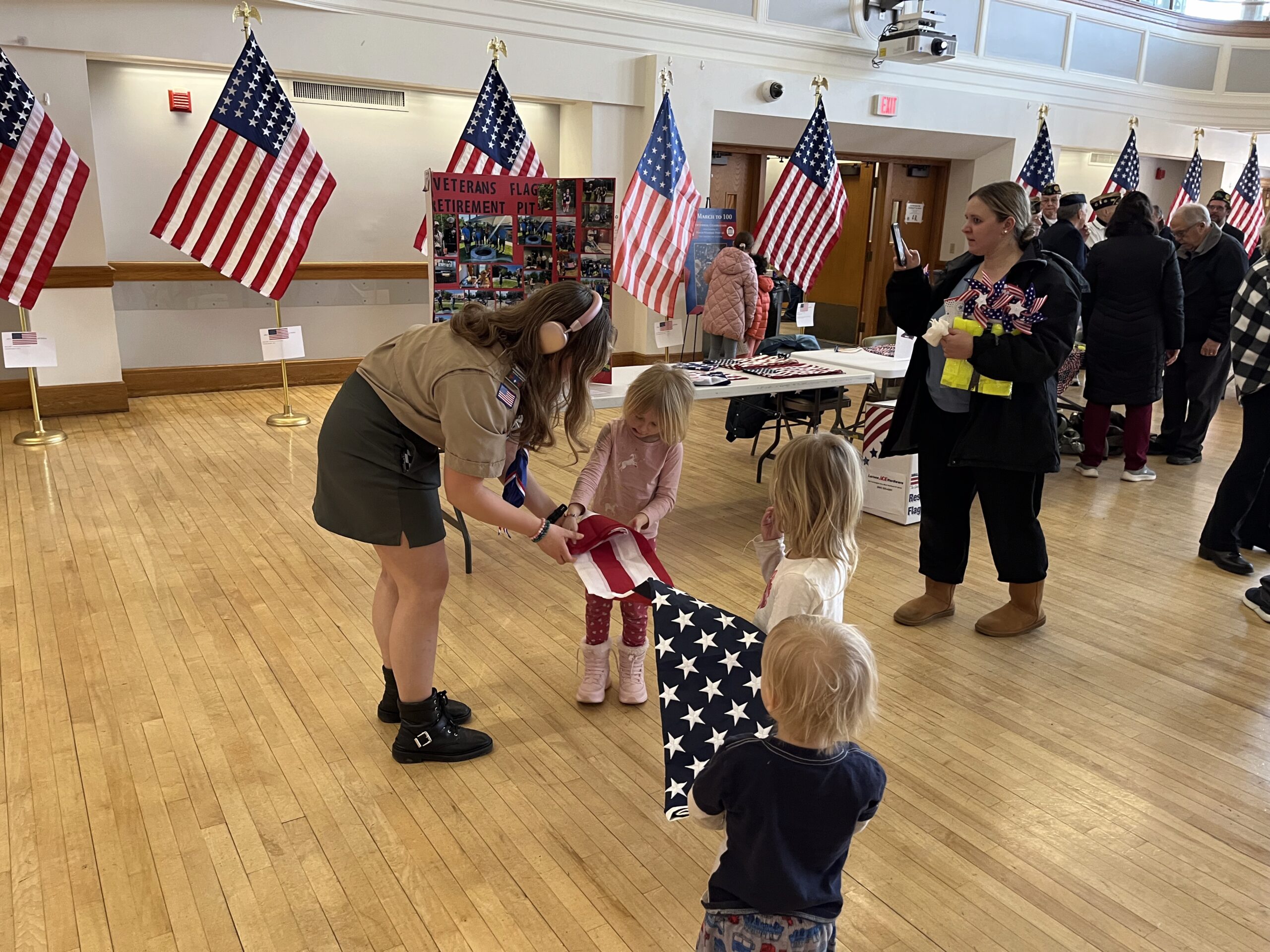Attorney General, Department of Consumer Protection, and AARP Speak to West Hartford Seniors about Scam Avoidance

Audio By Carbonatix

From left: DCP Commissioner Michelle Seagull and AARP Connecticut State Director Nora Duncan speak with Rita Schor at the West Hartford Senior Center. Photo credit: Ronni Newton
A conversation about fraud and scammers took place at the West Hartford Senior Center in Bishops Corner on Thursday.
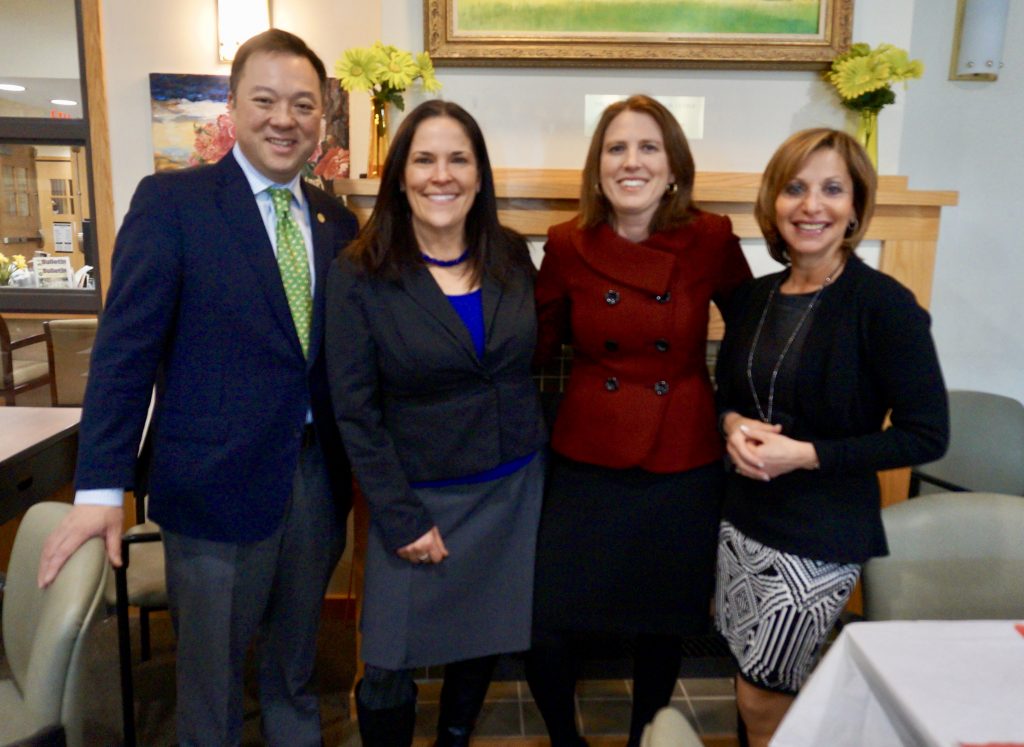
From left: Attorney General William Tong, AARP Connecticut State Director Nora Duncan, DCP Commissioner Michelle Seagull, and West Hartford Mayor Shari Cantor at the West Hartford Senior Center. Photo credit: Ronni Newton
By Ronni Newton
Attorney General William Tong, joined by Department of Consumer Protection Commissioner Michelle Seagull, AARP Connecticut State Director Nora Duncan, and West Hartford Mayor Shari Cantor, spoke to a group gathered at the West Hartford Senior Center in Bishops Corner on Thursday morning, noting that as part of National Consumer Protection Week, extra outreach efforts are being made to warn people about scams and fraud schemes that often target older adults.
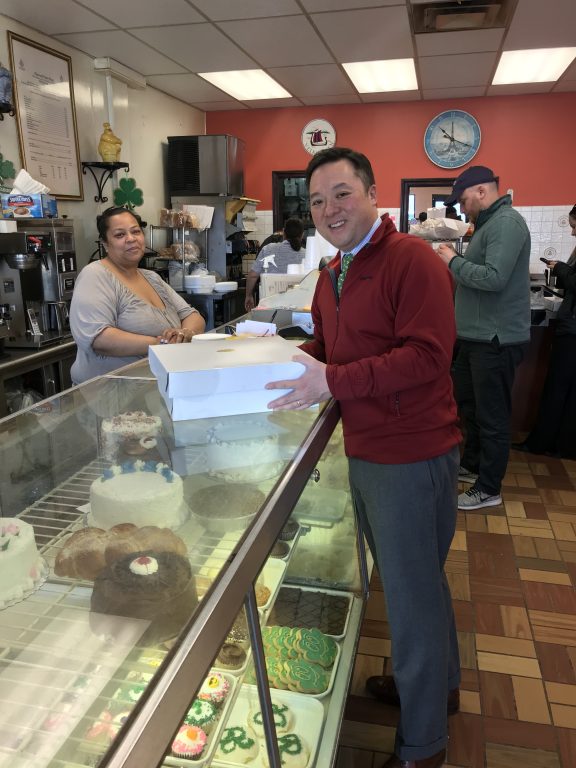
Attorney General William Tong at the Elmwood Pastry Shop. Courtesy photo
Before coming to the Senior Center, Tong, who lives in Stamford now but grew up in West Hartford and attended Whiting Lane Elementary School, made a stop at the Elmwood Pastry Shop, and came armed with not just good advice but also several dozen doughnuts.
The scammers can be very persuasive and creative. Tong shared that his own mother, now 68 – who owned a Chinese restaurant and had managed several rental properties – recently fell for a scam from a potential renter, who somehow convinced her that she needed to wire him $5,000. “He convinced her, and she did it,” Tong said.
“All of us get calls from the ‘IRS’ or calls that your grandson or granddaughter is ‘in trouble,'” Tong said. They prey on emotion. “People are defrauded of thousands and thousands of dollars every day,” he said.
“Be extra vigilant on your emails, on your smartphones, and on your telephone calls,” Tong said. Don’t give out personal information.
He asked the seniors gathered in the room if they should ever respond to phone requests from someone asking them to wire money, or purchase gift cards for them, and was met with a chorus of “No’s.”
The Attorney General’s Office is working with the Department of Consumer Protection and law enforcement officials to stop scammers, but they are often difficult to catch. They have methods of calling from phone numbers that appear to be from legitimate organizations that people know and trust.
Consumer Protection Week, March 3-9, 2019, was a good opportunity to have a conversation about fraud, but people need to be conscious of it 52 weeks of the year, Seagull said.
“They come from all directions,” said Seagull, urging the seniors to consider in advance what they will say when they get a phone call with a request. “When they ask you for money, just be prepared to hang up the phone. They are clever,” she said.
She advised seniors to put together a budget and determine in advance which charities they want to support, and then give directly. That makes it easier to say no to requests.
Seagull also urged seniors not to be embarrassed if they fall for a scam, and to be sure to tell law enforcement, and let family members know so they can help.
“The West Hartford Police chief says the most important thing you can do is talk to people about the calls you get,” Cantor told the seniors. The police want to and need to know what’s happening, so they can identify patterns.
Cantor said that she had two elderly relatives approached by scammers, preying on their emotions after seeing their names in death notices in the newspaper.
“Just be on the alert and share the fact that you have been approached,” Cantor said.
Duncan said that AARP’s “Fraud Watch Network,” which launched in 2013, provides valuable free resources online for identifying and reporting fraud – including a map of where in the United States certain types of schemes are regularly taking place.
“They go for the heartstrings,” said Duncan. Healthcare and medical identity fraud have also become more common.
“You can report scams, look up scams that are happening, or talk to a person,” said Duncan.
The Fraud Watch Network is available to people of all ages, and consumers can also sign up for “Watchdog Alert” emails, or call a free helpline at 877-908-3360 to speak with staff and volunteers trained in fraud counseling.
The AARP Fraud Watch Network also offers educational quizzes and access to AARP’s hit podcast series, The Perfect Scam.
Some common scams highlighted by the Department of Consumer Protection in a news release are:
Family Emergency Scams: Scammers prey on older adults by calling and saying that one of their family members needs bail to get out of jail, needs help to get out of a foreign country, or will even impersonate their family member and ask them directly for money. Don’t fall for this common scam. Hang up and call other family members to find out the truth.
Romance Scams: Whether dating online or using a matchmaker, many older adults are looking for romance and companionship. Twenty-six percent of Connecticut residents polled in a new AARP survey reported that they, a family member, or a friend have encountered attempted financial scams while seeking friendship or love interest online. DCP receives complaints about both online and matchmaking services, which may charge thousands of dollars without yielding any results.
Phone Scams: Not everyone has a landline in their home, but phone scams disproportionately affect people that do – and they’re mostly older adults. If someone calls and pressures you to pay them money, or give personal information right away, don’t fall for it. You’ll also be sure it’s a scam when they ask you to wire money, or pay in any other untraceable form of payment, such as a gift card. If the caller claims to be from a company you do business with you are always able to call their publicly listed phone number to verify whether the call was legitimate. That call will also help the company track scam patterns and work with authorities to alert consumers.
Anyone who has fallen victim to a scheme, or has a family member who has been affected, should also report it to the DCP at [email protected]. Residents can also call 860-713-6300 to reach the complaint center where someone can respond to questions.
Additional tips for being protected from or dealing with scams can be found on the Federal Trade Commission’s website.
Like what you see here? Click here to subscribe to We-Ha’s newsletter so you’ll always be in the know about what’s happening in West Hartford!
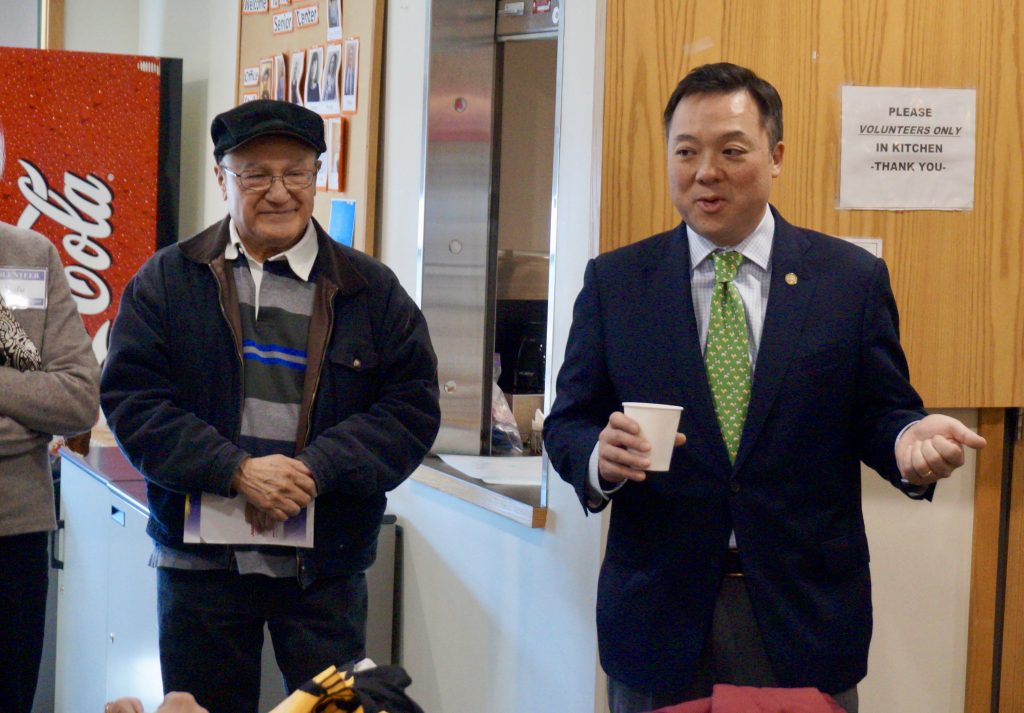
Manny Manucci (left) listens as Attorney General William Tong speaks at the West Hartford Senior Center. Photo credit: Ronni Newton
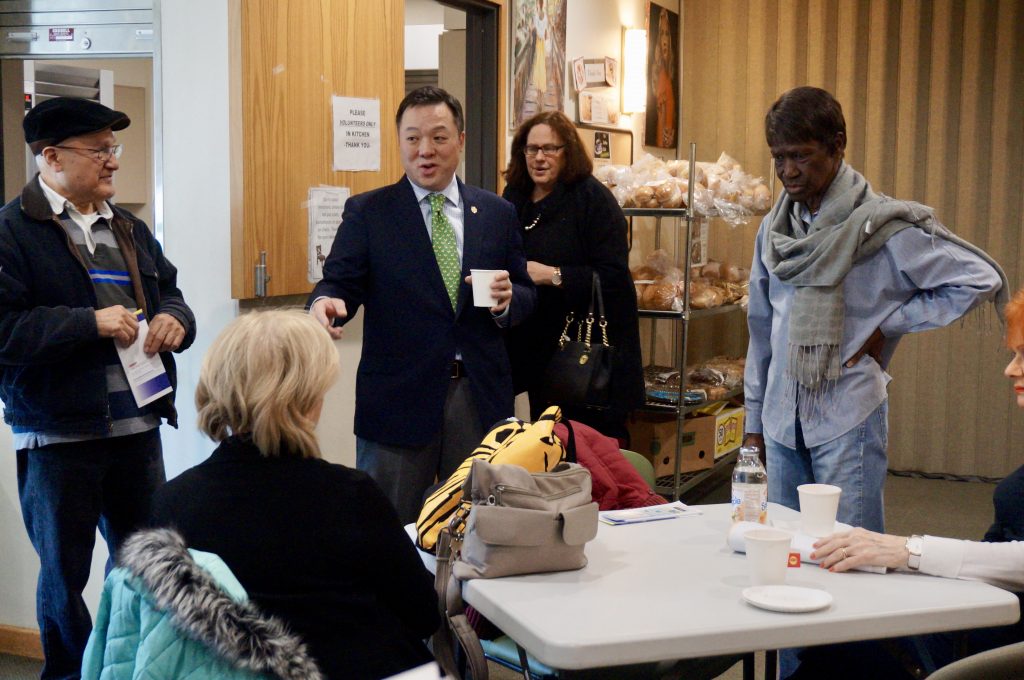
West Hartford Senior Center visitors engaged in a conversation about avoiding fraud on Thursday. Photo credit: Ronni Newton



